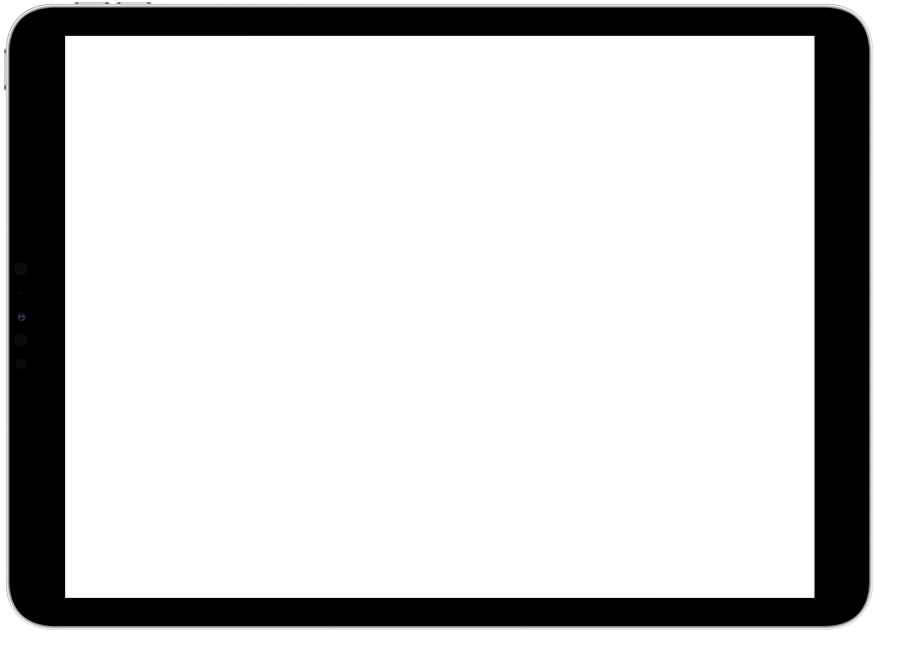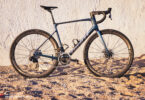There’s nothing quite like a cliffhanger, when one chapter of a book leaves you clawing at the pages, willing your eyes to devour the words to find out what’s next…For professional cyclists that cliffhanger of “what happens next” comes at the end of their racing career. For many it’s brutally simple, they wake one day no longer a professional racer. David Millar back in 2014, feeling the omnipresence of decline had to figure out his–”what happens next”. We visited him and his business partner, Richard Pearce, at their new Chapter 3 studio in Girona to find out how the launch of a cycling apparel brand is helping that precarious career transition.
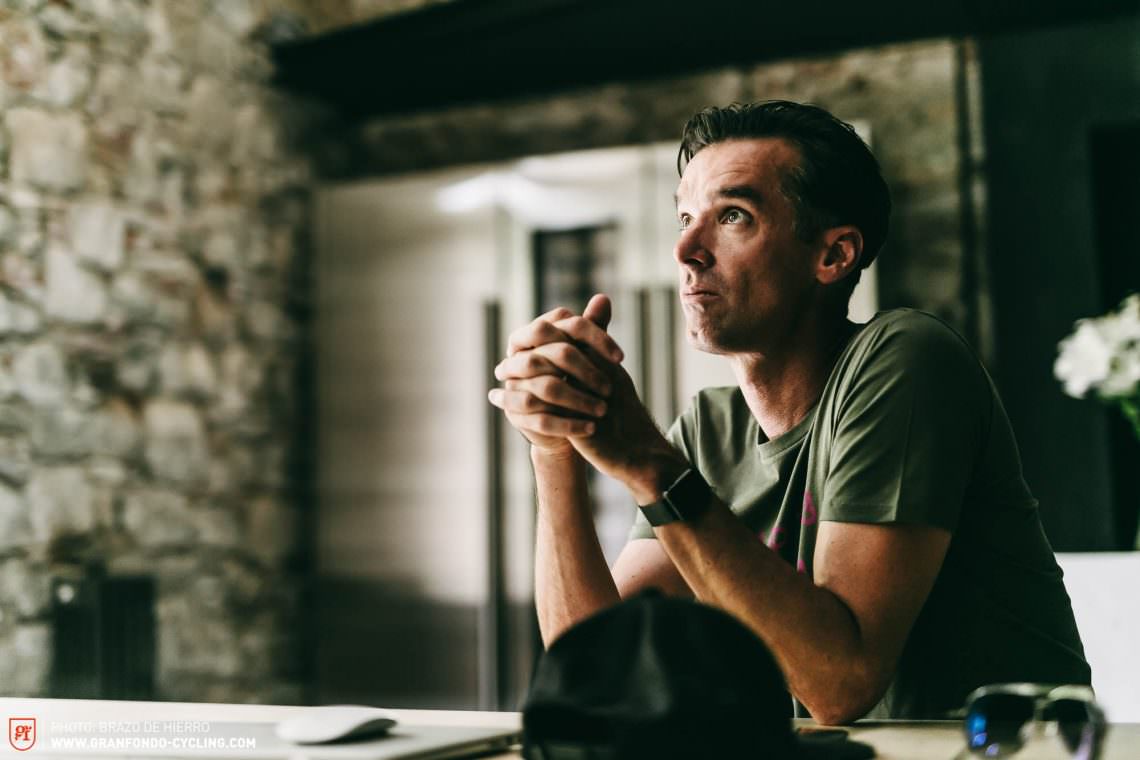
GRAN FONDO Cycling:
David, where did the whole concept of Chapter 3 come from?
David:
I had been quite adamant that I wanted to do something new and not waste all the relationships I had built up over the 18 years. Well some of them! Professional cycling is quite weird, I’d learnt from when I was banned that it cuts a cord very quickly and so I was semi-anticipating that. I was already in that descending spiral and could see my position weakening and I thought ok, well why don’t I try and own this, and go to those people and give them a different proposition, put my name to a long term project, and that’s when Richard and I got talking about it.
Richard said he was reading all these interviews with me, and he asked what is the next chapter? And I was like, well I fucking don’t know yet!
So when he said “well hang on a minute your biking career has been made up of two halves, before ban and after ban. And that was when he came up with Chapter 3. This is represented by the lines that are on the backs of the shoes, then the red line, this is where we go from now on. So Chapter 3 is something that basically doesn’t stop.
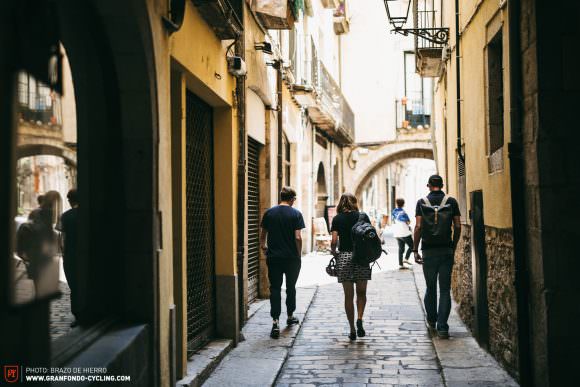
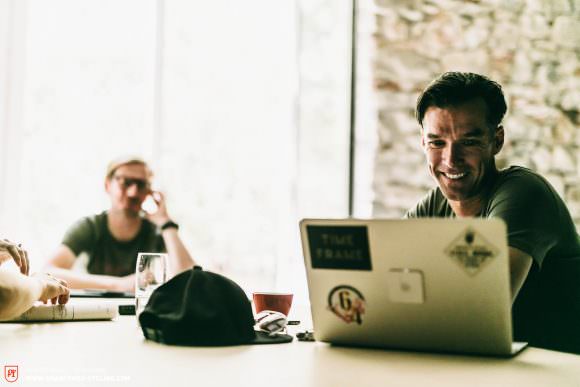
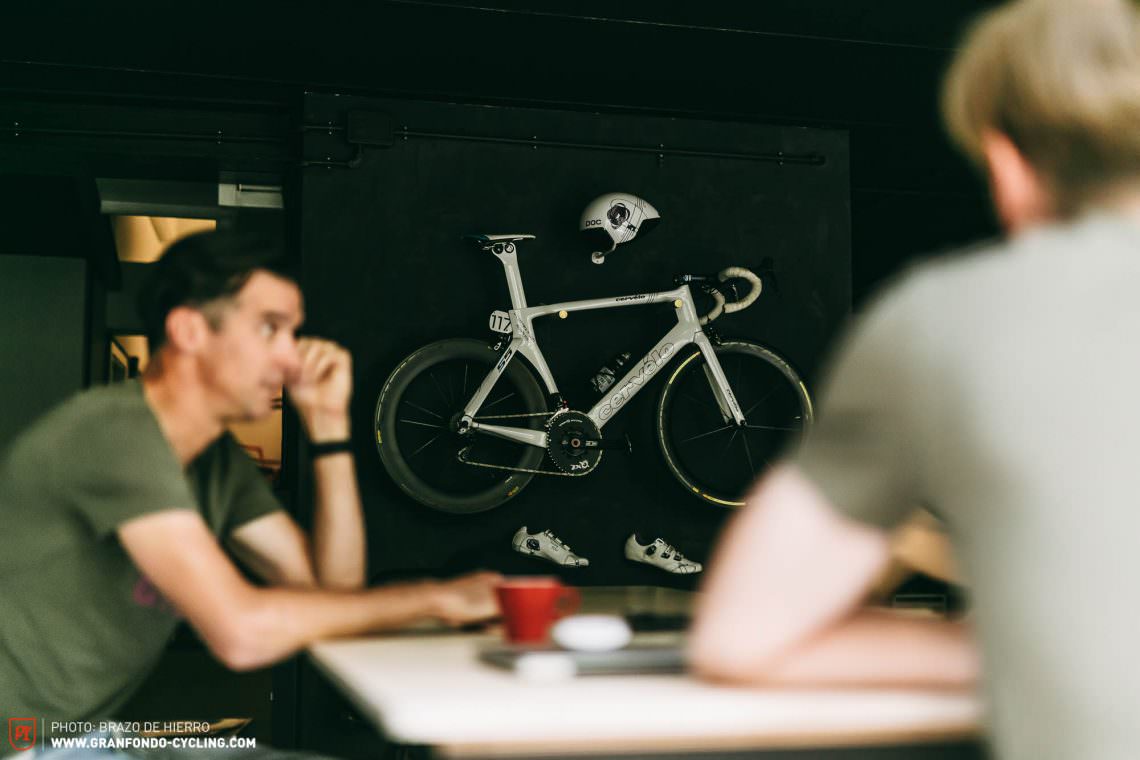
GRAN FONDO Cycling:
When did you decide that the next chapter needed to be started?
David:
I had already decided in 2013 it had to, because I knew what would happen but not to the degree it quite happened. It was very strange with my team Garmin Slipstream Cannondale, none of us have any contact with the team, I mean I live in Girona where the base is, you would think that if I’m having an event I would invite all those people because of previous relationships, but there’s nothing.
GRAN FONDO Cycling:
Which is kinda strange because they give off this vibe of being that friendly team .
David:
Yeah they breed this brand of being friendly, but each of those riders doesn’t realise that they are going to be burnt completely when they leave the team. There’s a real sad tragedy about that.
Most of our ambassadors are from the old team. We understand the power of social media and the necessity to create a mass inspirational group of people who are present on the internet in one form or another and we thought, do we get social media influencers to do this? We spent a lot of time thinking about this and didn’t just want to give kit away to people who have 40k followers and who are great with hashtags.
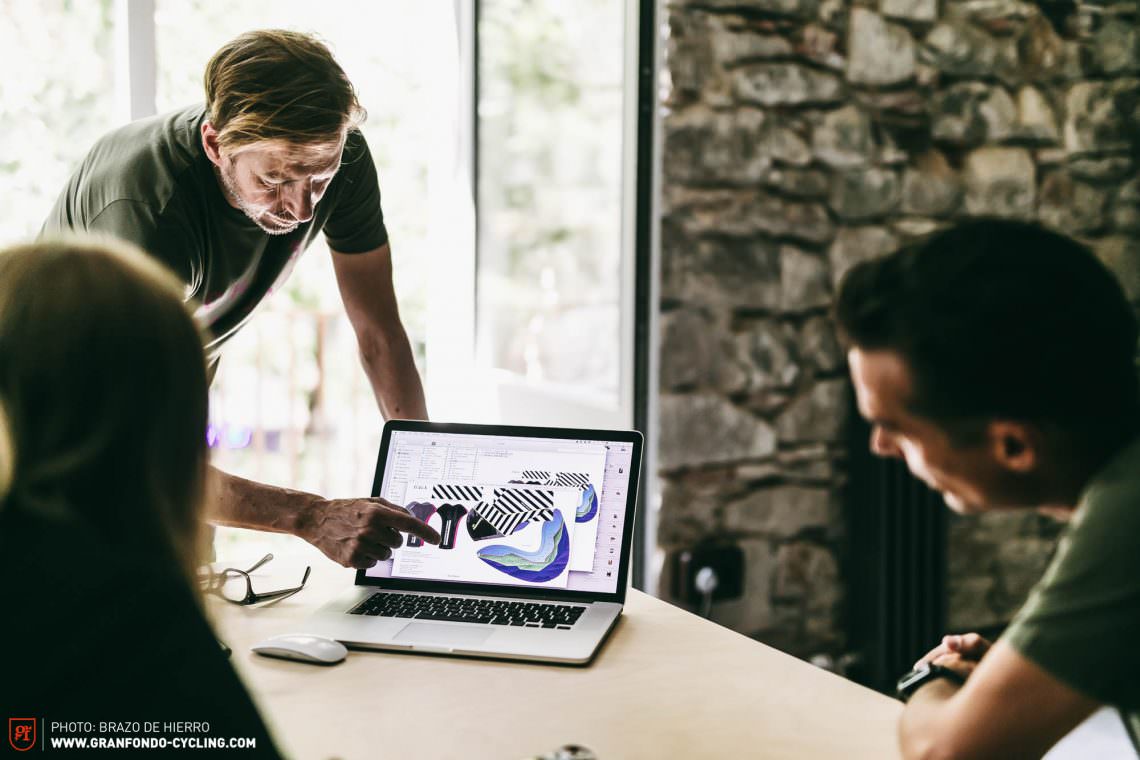
GRAN FONDO Cycling:
and just do lots of selfies?
David:
Yes exactly, thank you! That’s exactly what we didn’t want but we knew that we had to do something, so we approached some people to wear the kit who we would actually like to spend time with in the real world, and create a club around them. We have created a thing called Sporting Group 3, which is our ambassadors club.
The majority of them are ex-teammates. So it’s kind of been like getting the old team back together. We’ve got Ryder Hesjedal, Christian Meier, Dave Zabriskie, Thomas Dekker, the only guy who wasn’t an ex teammate is Baden Cooke, but we were best friends, racing together back in the early 2000’s.
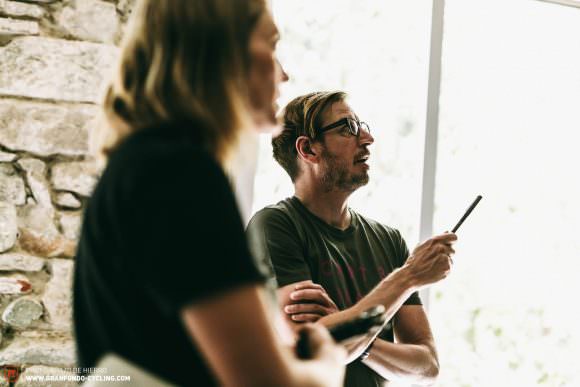
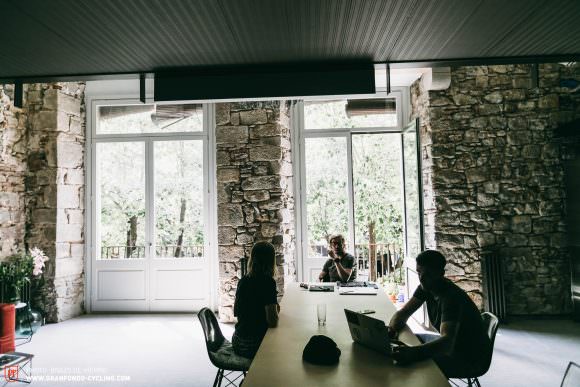
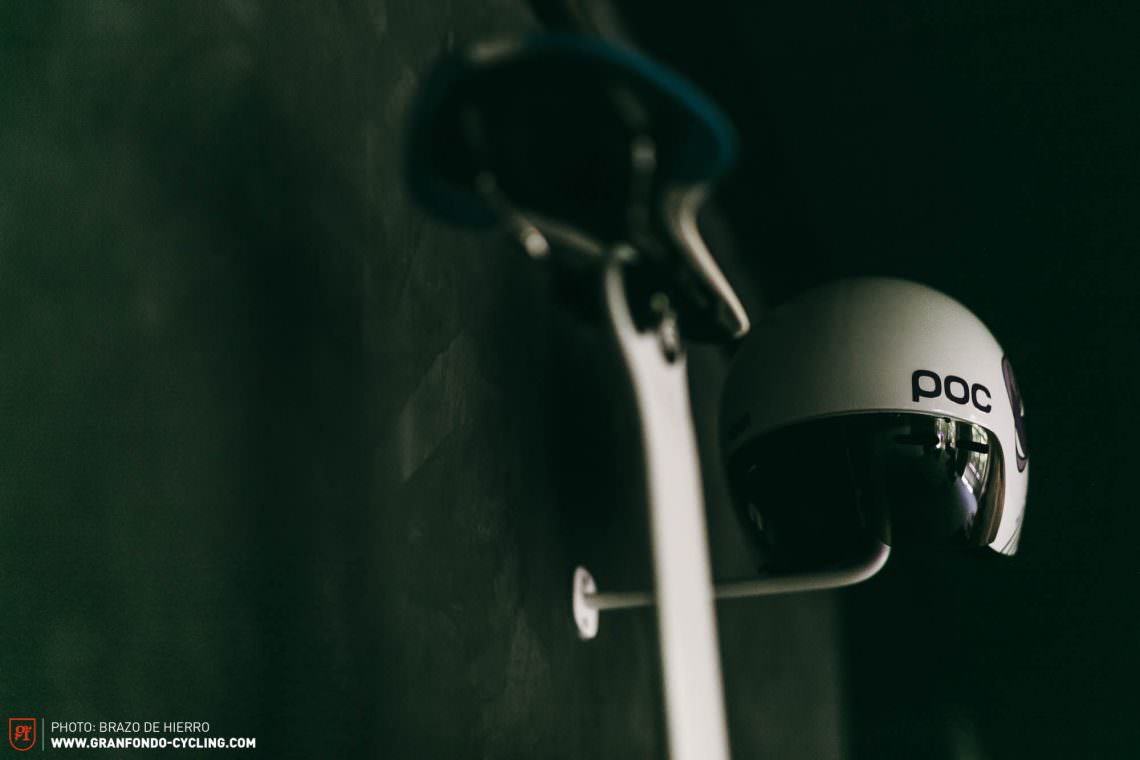
GRAN FONDO Cycling:
You said that cycling was such a massive part of your life for so long, and then you got burnt from it, did that not make you feel you completely wanted to step out of it?
David:
Well no, I did that for a while and then realised I would be stupid if I didn’t go back. I was resentful of what I had done, or what it had made me do but not the actual big picture. So I was pissed off that it had made me take drugs.
GRAN FONDO Cycling:
Well I didn’t mean as much about that part, I mean as far as how it ended with Cannondale?
David:
Oh god no, no, that’s just unfortunate, it’s just a simplistic model of what the sport is, it’s disappointing that it happens on such a micro-level, but that’s just the sport. We don’t have a transition program, we don’t prepare the athletes for their future lives, we don’t have anything, it’s something I’m working on as well behind the scenes, but that’s a whole other story. The majority just get left out there which I don’t think is very ethical.
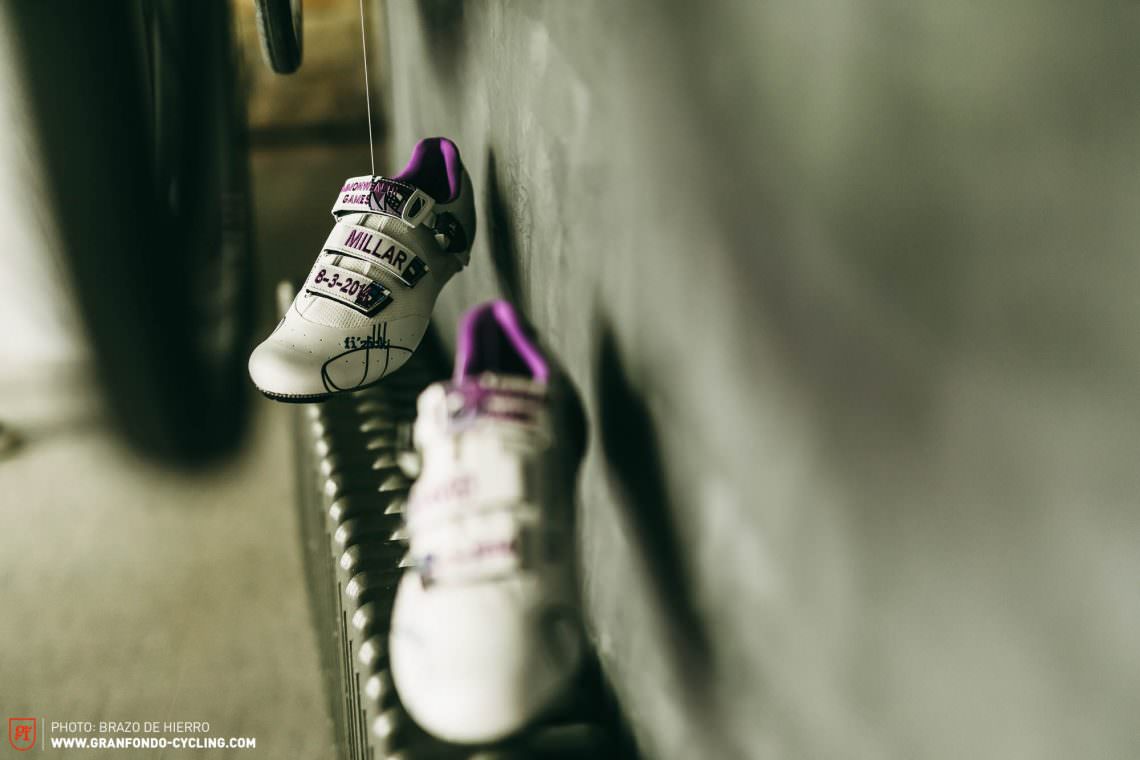
GRAN FONDO Cycling:
I guess sometimes there isn’t the funds in the teams to invest into that, don’t you think?
David:
Well it should be a priority shouldn’t it, it should be one of the talking points, it shouldn’t just be where the fuck are TV rights; today’s the first day the Hammer Series starts, I don’t really know what the Hammer Series is…
GRAN FONDO Cycling:
I don’t think a lot of people do…
David:
Exactly, and where in the Hammer Series are they projecting what they are going to do for the riders? It’s all for the team owners, it’s all for getting more sponsorship to pay, the model is essentially the same, there’s nothing within the Velon model to look after the actual athletes. So although they are saying it’s going to be distributed wealth, we’re going to be revenue sharing, that’s all fine, but what about the ethical deeper level, how are we looking after these athletes, these riders who are the pawns in this game? I think that is something that Velon is missing.
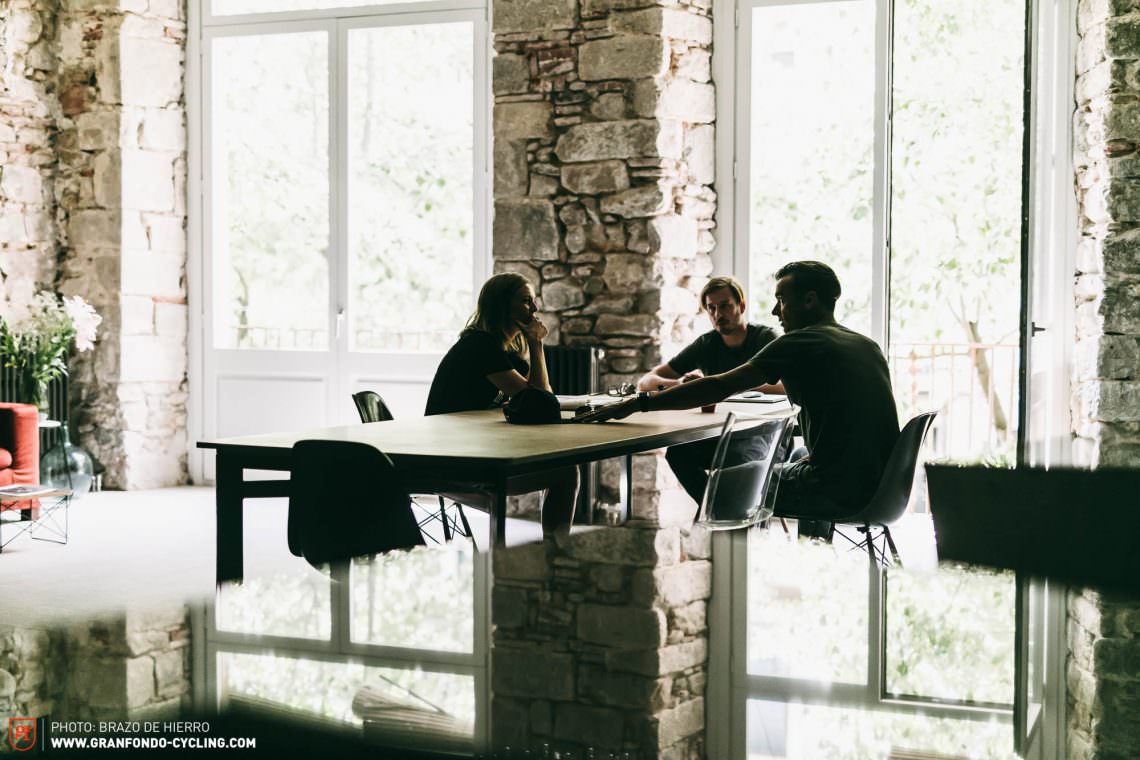
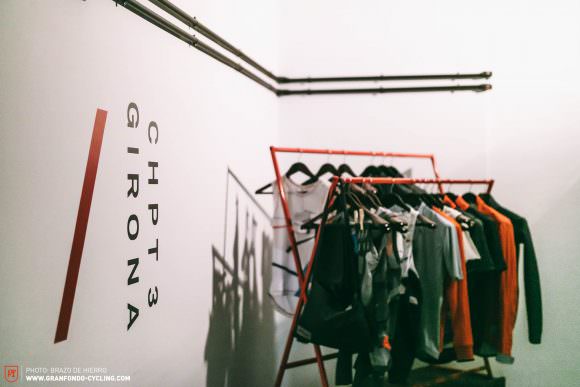
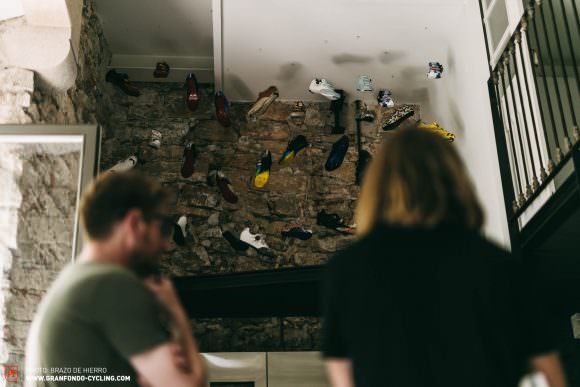
GRAN FONDO Cycling:
In relation to the reasons why people get into cycling, freedom being one of them and the fun element, do you think towards the end of a cycling career it kind of de-humanises you?
David:
Yeah I think so, I think that’s why I wrote the second book, The Racer, because it is very clearly about the decline and the fall, we all go through it one way or another, whether it’s performance, whether it’s psychological, it’s something we don’t really talk about. It’s a very long ascent for the majority, but a very rapid descent, but the irony is that you’re still at the top, you’ve still got that mask of accomplishment and achievement but yet it’s all crumbling inside. You become this weight of accomplishment when you know you can’t fucking even do it anymore.
GRAN FONDO Cycling:
When we talk about cycling the word sacrifice gets bandied around a lot, what do you think now running your own business, what would you consider as sacrifice?
David:
I don’t think there is any, I don’t believe in the word sacrifice, when I was younger I did, when you wallow in self-pity and loneliness, but sacrifice is a meta level when it properly comes to life and death and horrific things. Then if you’re going to have to walk across that line for somebody else, that’s sacrifice. But otherwise there’s always a deeper down motivation to accomplish, to build something. Now if you’re using the word sacrifice to achieve something that’s not sacrifice, that’s just work, it’s what you’ve got to do.
Richard:
It’s your decision to do it really.
David:
Yeah, if you’re going to do something and it’s a loss, that’s sacrifice, especially if it involves your loss, and I think that’s the thing, most people in elite sport when they’re sacrificing it’s to do something bigger, that’s not loss that’s gain. What Richard and I are doing is we’re having to work really fucking hard, and you have to believe in something, in it’s longevity, and that does mean compromising on a lot of things.
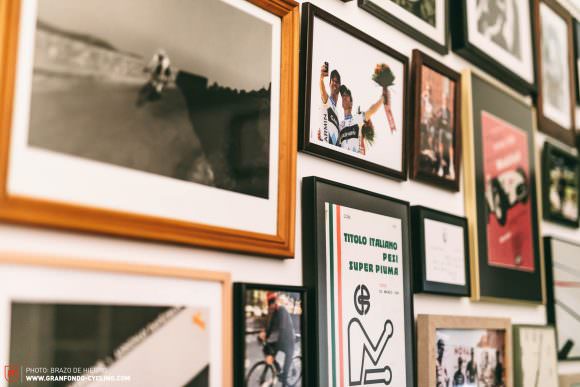
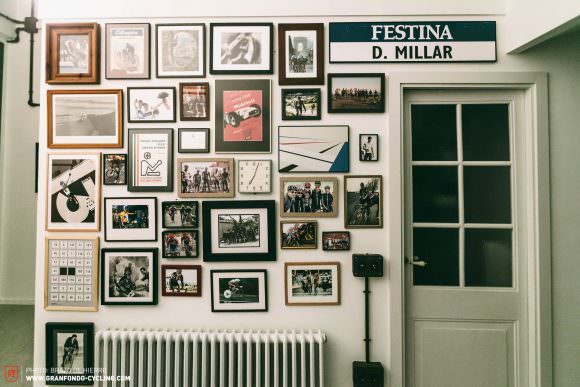
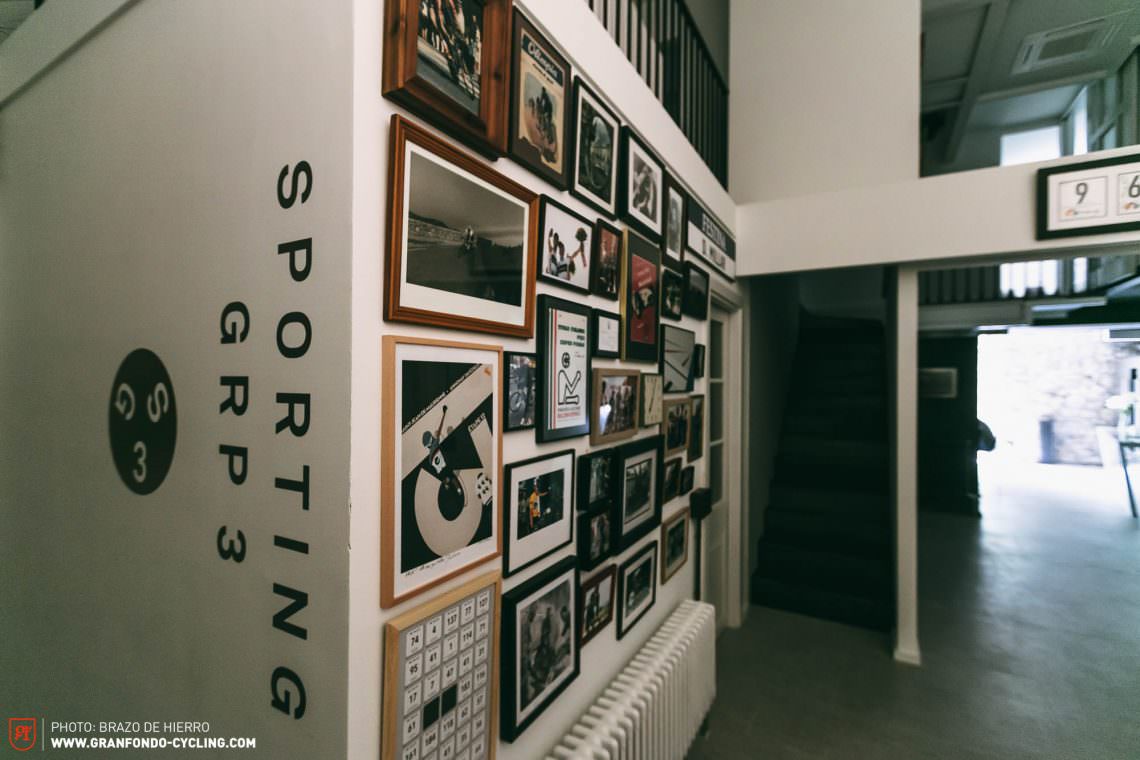
GRAN FONDO Cycling:
How does that compare to when you were racing?
David:
Same thing, same thing although this time I’m older and I know what it involves. Richard is the same, we are both accomplished men in our fields and we’re now starting from scratch but with everything we’ve learnt, and I guess that’s part of the fun of it, but it does mean that you have to get deep.
GRAN FONDO Cycling:
Some emotional nights around this table?
Richard:
I mean it is hard work but it’s enjoyable at the same time. We try not to put too much pressure on ourselves.
GRAN FONDO Cycling:
I guess from a sacrifice point of view, what people think about is your family and your relationships and the sacrifice you make in that sense? In the sense that elite sportspeople aren’t doing the same kind of thing that I was doing in my 20’s, but I guess you say that the team becomes your family and friends, right?
David:
I used to say that when I was younger, refer to them as my family, and then I got banned and they just cut the cord, those people who were supposed to look after me, and I was like fuck you’re not my family. I remember from that moment on anything I did in work I would never refer to it as family. The only family I have is my blood. Whenever you hear anyone in these interviews saying “it’s like my family” I’m like, fuck, nothing bad’s happened yet has it!
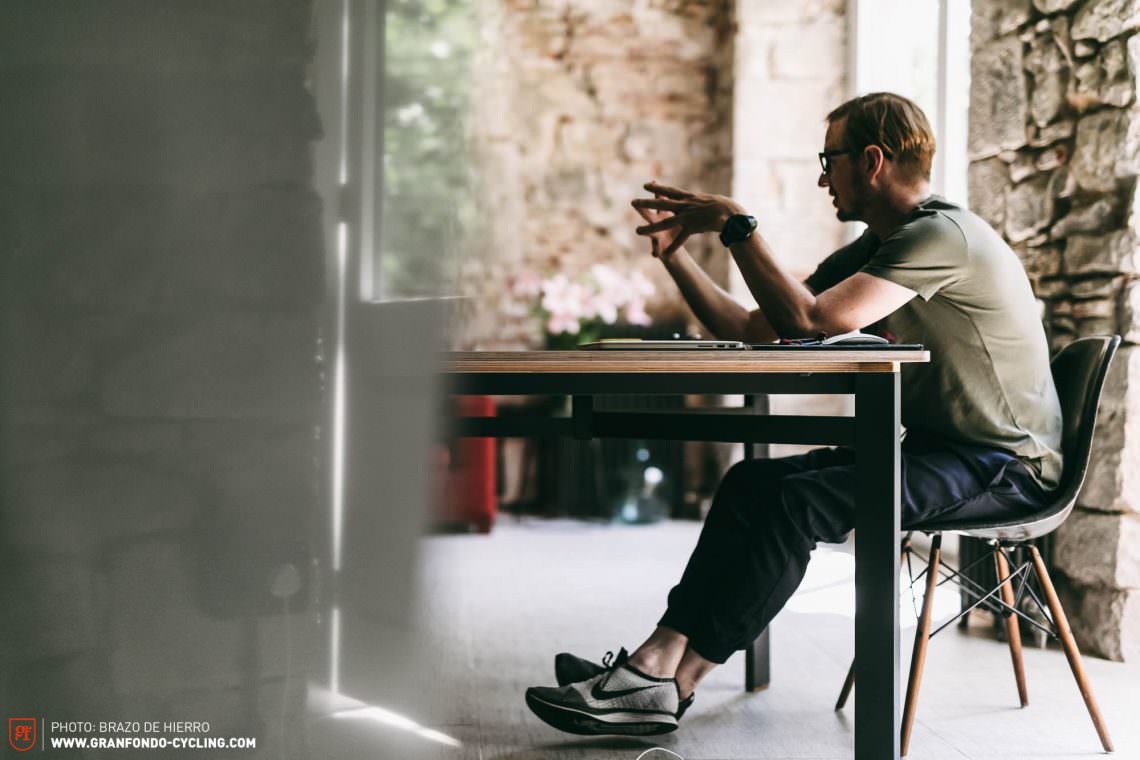
GRAN FONDO Cycling:
How do you find that relationship working and building a business together as friends?
Richard:
I think it’s good in that my background as a designer and an architect I bring certain things and David brings his racing experience. We both respect each other massively in our individual fields. And the one thing that David is first to admit, that coming into this, running a business, making products and promoting them, there was a lot of things he didn’t know.
David:
Oh I was totally clueless and full of naivety…Naïveté de jeunesse [laughs]
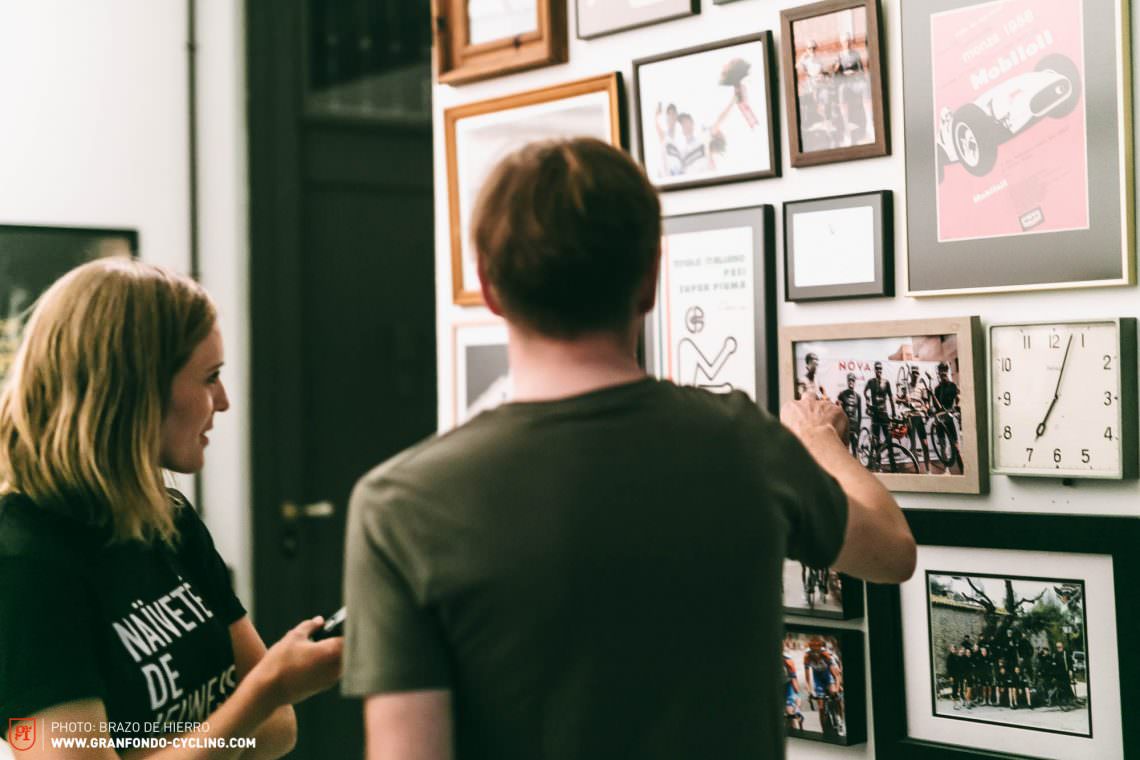
GRAN FONDO Cycling:
It must be so different for you now because when you were racing you had someone telling you right this is what you have to get up and do today, to all of a sudden you haven’t? Someone said to me the other day the phrase, find something you love and you’ll never work another day in your life, what they don’t say is do something you love and you’ll work every fucking day of your life.
David:
Yeah it’s true isn’t it.
Richard:
Exactly, exactly.
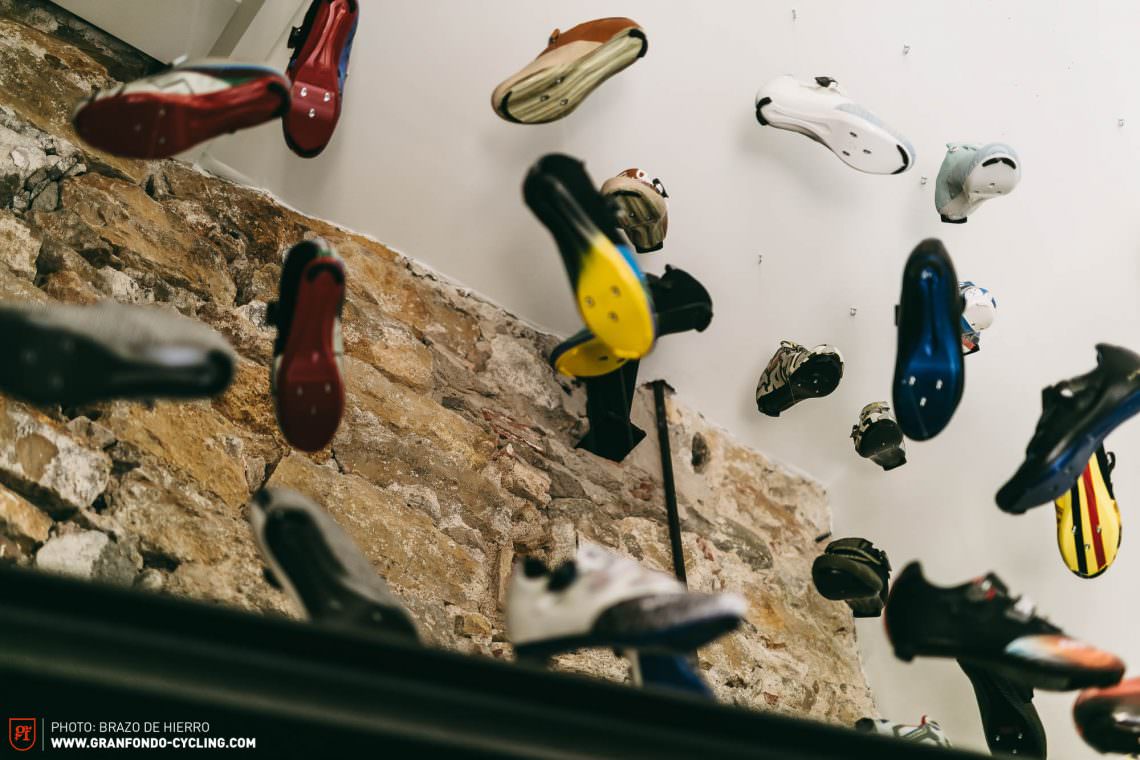
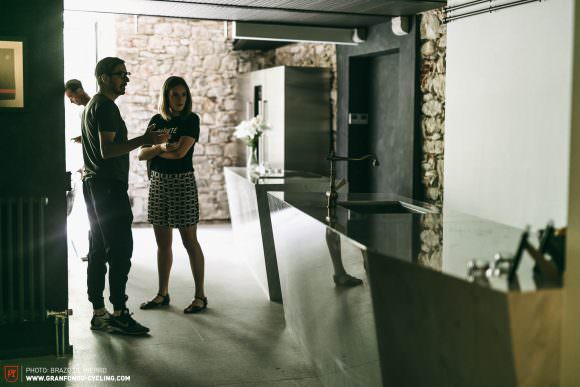

David:
Yeah you know it is very much like that, and I guess I didn’t really fathom that in order to fulfil this dream it would mean me travelling so much again. The whole creative side of things I do really enjoy. I’m building this website at the moment, which means I’m writing all the time, it doesn’t feel like work for me, until it starts compromising my personal life. When I realise that I’m not seeing my wife, and then I reflect and think ok, but then it’s my passion so finding that balance is difficult because I do really enjoy seeing something come to life. And I can feel it all starting to come to life now.
Richard:
Although I think a lot of that is down to having the studio now. Up until November last year we were essentially running the business off of my kitchen table in Mile End.
GRAN FONDO Cycling:
Mile End?
Richard:
Yeah but I said, look in order for us to grow this business it needs a home and so we decided to get a studio and I looked around in London and then I thought, hang on, we make really high performance technical cycling clothing why would we open a design studio in London? Why don’t we do it in Girona. And of course he agreed and liked the idea.
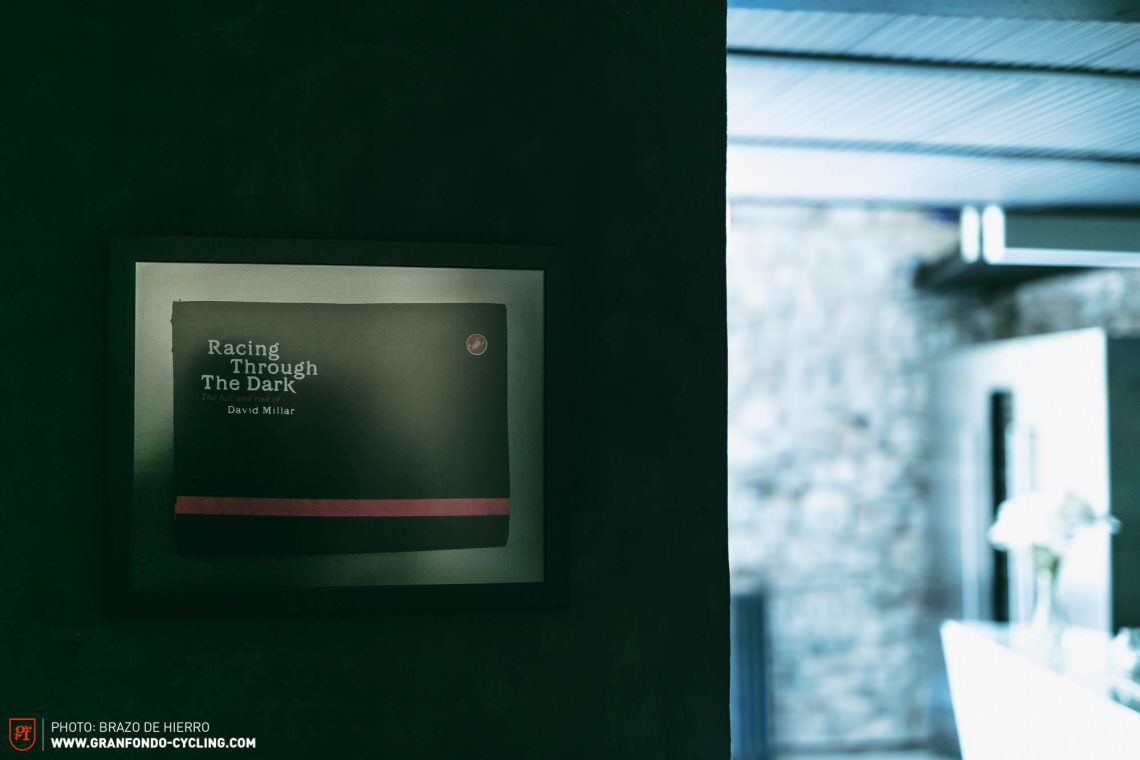
GRAN FONDO Cycling:
It makes your commute a bit easier, David.
David:
Well, I now have a commute…FUCK! [laughs]
Richard:
Here we’re in the heart of the peloton, there are so many guys who live here so it felt better to have our studio right bang in the middle of Girona where people are exposed to our products, where we can give stuff to the guys to test. So it made so much sense to locate the business here and gave us more room to expand and grow
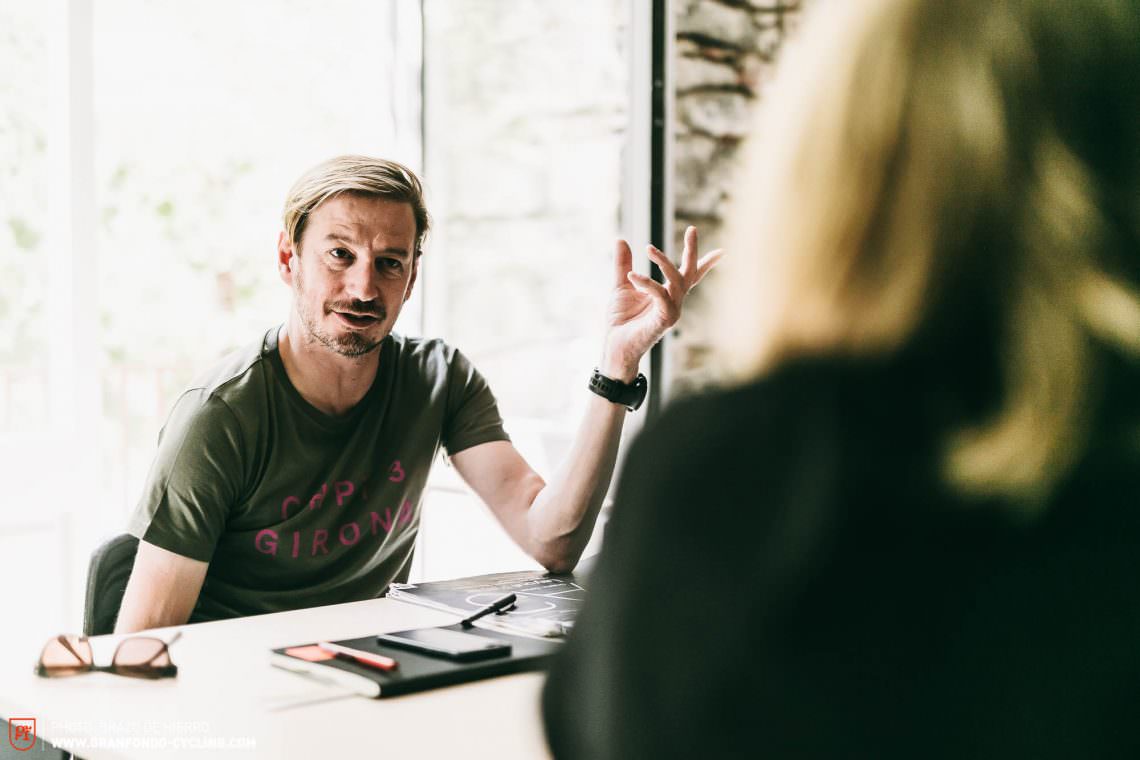
GRAN FONDO Cycling:
How do you find it now dealing with media compared to when you were racing?
David:
It’s much better than what it was last year. I kind of got sick of talking about the same things. Now it’s my prerogative, whereas before it was a duty to my team and the sponsors and the sport. Now it’s all about business so it’s fine, now I enjoy it because I enjoy the conversation a lot, depends on the journalist obviously. But it’s weird, I think my interviews are always quite intense affairs and the amount I disclose. Maybe I have more of an odd relationship with the media than any other professional cyclist.
GRAN FONDO Cycling:
Do you get out on the bike much now?
David:
No not really.
GRAN FONDO Cycling:
Has that relationship diminished now?
David:
Erm, it’s changed, but, it’s just I don’t really have time at the moment, I could always make time but I don’t. I make time to do other things, like spending time with the kids or working.
GRAN FONDO Cycling:
A lot of people working, they use getting out on the bike or doing sport as their way of release.
David:
Yeah I don’t really have that because, and I think people underestimate, we are in full start-up phase at the moment. I remember chatting to Paul Smith and asking him how he had done it, and he said somebody once told him–just get up earlier and go to bed later. And that’s how you do it. I’m finally grasping that right now. And all that I have to do, I don’t have fucking time for a bike ride. People say to me–go out for a bike ride. And I think what, go out and do nothing for an hour, it’s kind of like even an hour at the moment is time lost.
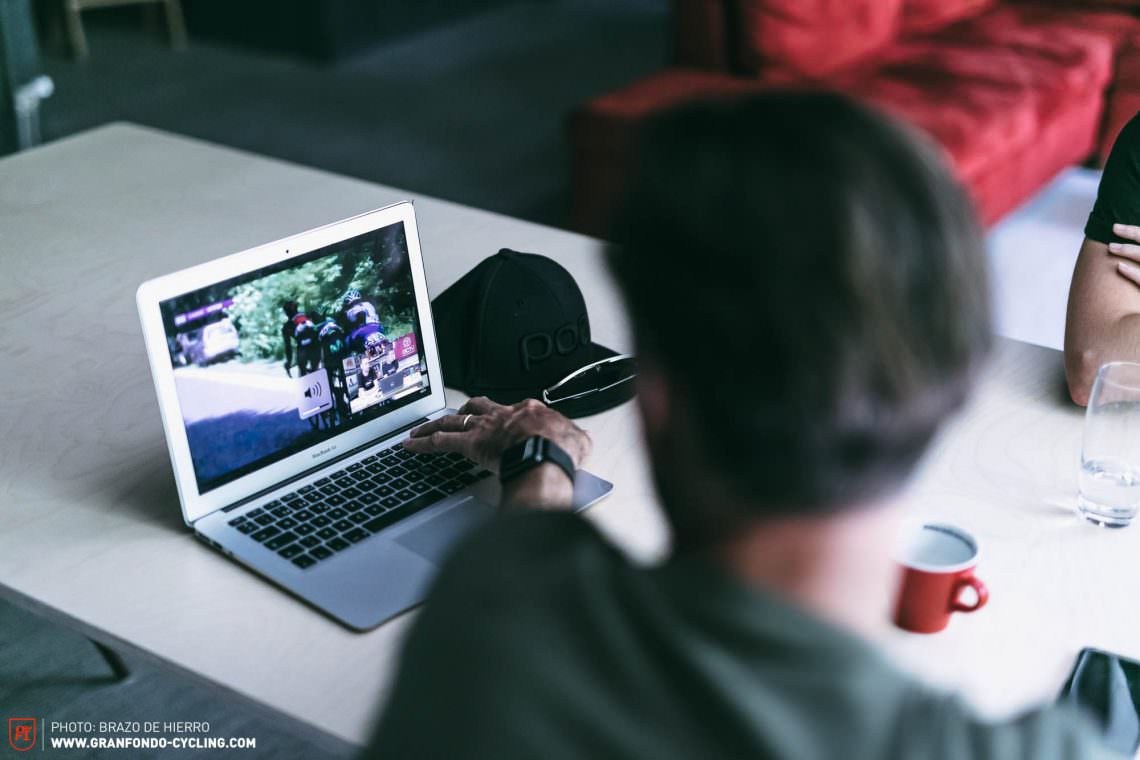
GRAN FONDO Cycling:
But it can be a time when everything that is going on around you can process and things come together.
David:
Yeah I don’t work like that, I have to be working. I go the opposite direction if I do sport, I just go into an infinite loop, it’s very unproductive. I taught myself for years to train as an athlete to not think whilst I was out riding, if I thought about stuff then I couldn’t train. I never listened to music because that made me think, it was just very much switch off when I do sport, be purely performance based, it’s purely athletic, it’s purely breathing, it’s purely focus on objectives.
GRAN FONDO Cycling:
Is that when it kind of killed it for you, the racing, it brought that chapter to a close?
David:
No it was just when I couldn’t do that anymore, when I started thinking [on the bike] then I couldn’t train as well, so if I do sport now it’s like I think I should be doing something instead, I’m thinking why am I on my fucking bike, I should be working at a computer or speaking to people.
GRAN FONDO Cycling:
So this is maybe a bit of a morbid question, but there’s a book about people when they get to their death bed and they talk about what they wish they had done more or less of in life; so if someone said you only have 24 hours left what would you say you wish you’d done more or less of?
David:
I’m pretty cool on all that lot, I’m covered, I’m fine.
GRAN FONDO Cycling:
Really?
David:
Yeah totally.
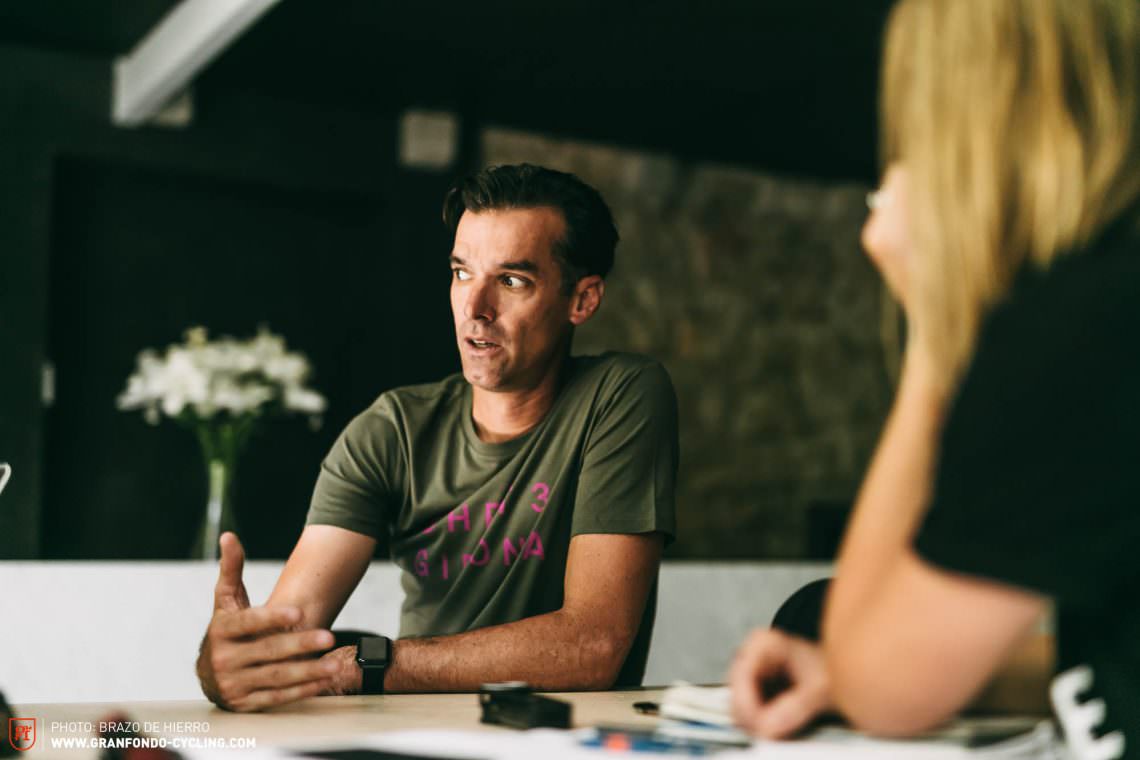
GRAN FONDO Cycling:
Well that’s a good place to be
Richard:
You’d just say fuck it, shall we just go to the pub!
David:
Totally, I’ve lived to the complete max, I stopped regretting things a long time ago.
GRAN FONDO Cycling:
That’s good, it’s good to not have any regrets.
David:
I have regrets, don’t get me wrong, if you don’t have regrets you don’t learn, but it’s a fine balance between living with and living your life on regrets.
Richard:
When you get to the fork in the road and you go one way, you don’t actually know what would have happened if you had gone the other way and how that would have turned out. So how can you regret it? For example, I got offered a really big job in California and I often think well I might have been in California now and married with three kids, I mean who knows. But instead I’m in Girona, stuck with him!
[laughs]
This article belongs to the GRAN FONDO Issue #005. For the full interactive experience we recommend reading it in our magazine app for iPhone & iPad – it’s awesome – and free!
Did you enjoy this article? If so, we would be stoked if you decide to support us with a monthly contribution. By becoming a supporter of GRAN FONDO, you will help secure a sustainable future for high-quality cycling journalism. Click here to learn more.
Words: Hannah Troop Photos: Brazo de Hierro


